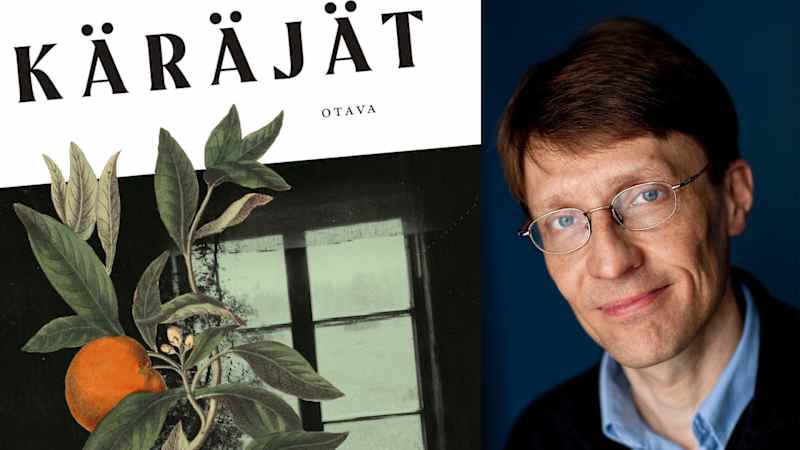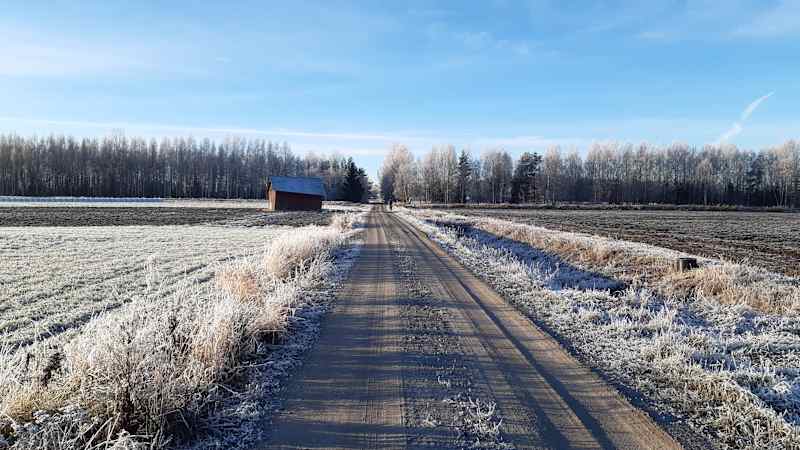Readers fell in love with Markus Nummi’s novel, and it sold out in many shops over Christmas

Markus Nummi’s The Carcasses is a historical novel set in a village community. The book has been exceptionally popular with readers.
While Nummi was organising his archives, many others were reading his novel. Around Christmas, social media and literary groups were filled with rave reviews and sighs *”why wasn’t Käräjät nominated for the Finlandia “*.
Many were also left licking their chops as the book was sold out in several shops. So far, around 6 000 copies have been sold and new editions are on the way.
Libraries are also facing a growing booking queue. In the capital region, there are currently more than 1 750 bookings in libraries.

Markus Nummi is a rarely published author. He feels comfortable with praise and thanks, because he spent eight years writing the *Käräjät* novel.
– The feedback has been really inspiring. It really seems that many people have only now had time to read the book, because it is quite extensive.
The 570-page work is a historical novel, which nevertheless proceeds like a detective story. Little by little, the motives, causes and consequences of the characters are revealed to the reader.
The events take place in South Ostrobothnia in the fictional village of Tarvajoki. As the name suggests, the book deals with court cases, because illegal abortions have been carried out in the village.
Abortion was completely illegal in Finland until 1950. In Numme’s book, the courts are held in 1938.
In the background is a real chain of events, from which Nummi got hints from the stories of his relatives.
The shamelessness disappeared during the hearings
Numme’s mother was from Teuva in South Ostrobothnia, which is a small municipality between Kauhajoki and Närpiö. The fictional village of Tarvajoki is very similar to Teuva.
– I spent my childhood summers in Teuva, so I am very familiar with its landscape, speech and attitude. We didn’t have a summer house, so we went to the country with our grandparents.
– However, there were many gaps in it that required clarification. In the interviews, a superficial reference to the situation where the neighbor’s master and mistress returned from Vaasa prison had come up.
Archives came to the rescue. Nummi found interrogation records in the Vaasa provincial archives (now the office of the National Archives), which revealed that the prison trip was connected to a string of embryo transfer cases.
A completely different view of the small village community opened up from the minutes.
– They were quite worthless to read. People, who were otherwise very shy, told in great detail about the events and the participants during the interrogations.
According to Numme, the documents revealed what kind of stick or hook had been used and how. And did you drink coffee before or after the abortion.
– The stories were so sprawling that they provided a lot of material for a fictional story.
View from the window
*Käräjät* (Otava) has delighted especially with its narrative solutions. It took several years for Numme to think about them. Many narrators dropped out along the way.
– The writing process involved several detours and also disbelief.
Crimes are investigated with the voice of an important county detective. However, the main character is the strange Aunt Vilja, who many people consider to be a badass.
As the book progresses, it becomes clear that something terrible happened to Vilja in his youth, which is why he has withdrawn from the world. Vilja observes the events of the village through his window. A limited perspective emphasizes the outsider in the community.

Aunt Vilja also has a role model in history.
– In my mother’s childhood home lived an aunt somewhat similar, whose fate my mother often lamented.
Getting to know your family
Markus Nummi has lived in Helsinki all his life, so it was a big threshold for him to use the dialect. He ended up using it very judiciously.
– I was very unsure about it at first, but I checked the sayings with my relatives, of whom there are still many in Teuva.
There was also a lot of joy in the long and thorough writing process, because Nummi got to know her family again. He interviewed his older relatives for the book, as they still had many detailed stories in their memory. In addition, he got to know his countless little cousins.
The next writing job might be the same beginning of a novel that was left unfinished when the stories of the family absorbed it. It would be something completely different, because Nummi describes the genre as fantasy.
The *Käräjät* novel was not nominated for Finlandia, but it will compete for the Runeberg Prize in February alongside nine other works.
